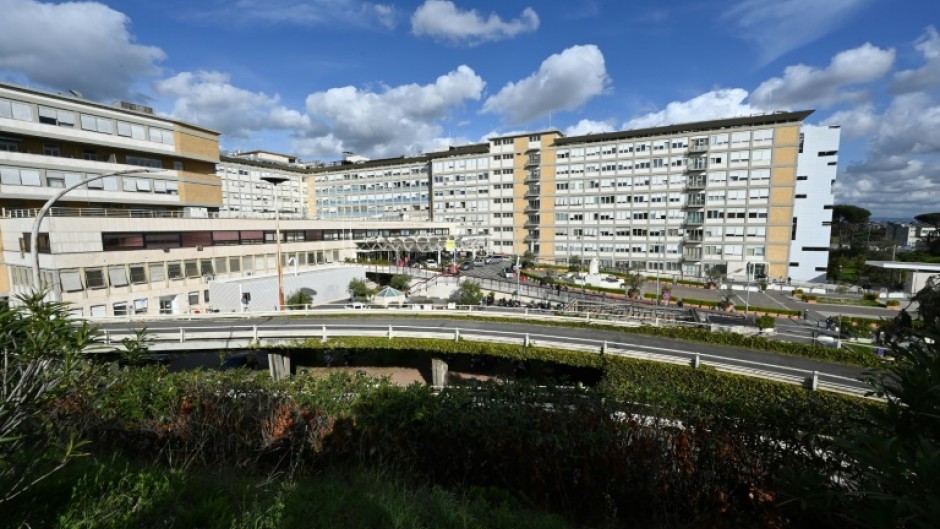
Audience
- Sentiment: Concerned but hopeful
- Political Group: Moderate or liberal individuals
- Age Group: Adults aged 30-65
- Gender: Both genders
Overview
- Pope Francis hospitalized due to respiratory issues, marking his fourth hospital visit since 2013.
- His condition shows slight improvement, leading to hopes for recovery among followers.
- The situation emphasizes the importance of balancing responsibilities and self-care, reflecting on how even leaders need to listen to their health.
Pope Francis Advised to Rest as Health Issues Persist
Pope Francis, the leader of the Catholic Church, has become a significant figure not just for Catholics, but for many around the world. As one of the most recognized religious leaders, he has engaged with various global issues from poverty to climate change. However, as of recently, the Vatican has confirmed that Pope Francis has been admitted to a hospital in Rome due to a worsening respiratory infection and bronchitis. At the age of 88, this has led to a lot of discussions about his health, and many people are expressing deep concern for him.
Despite his ongoing role as a prominent leader, this marks not just a brief hospitalization but the fourth time he has had to stay in a hospital since he was elected as pope in 2013. It serves as a reminder that even leaders who seem larger than life have their moments of vulnerability. Pope Francis is known for his tireless work ethic and his dedication to serving people across the globe. He has been actively involved in major events, including Jubilee celebrations — a religious season where Catholics seek forgiveness and renewal. So, when his doctors advised him to take “absolute rest,” it highlighted a serious need for him to step back from his usually demanding schedule.
The Vatican, the papal government, did release a statement indicating that his condition has improved slightly. They noted that he has not had a fever and has been experiencing restful nights, which is uplifting news for many of his followers who have been praying for his recovery. The fact that people are gathering to pray for him demonstrates just how much he means to millions. People don’t just see him as a pope; they see him as a compassionate leader who cares deeply for humanity.
Pope Francis has a history of health issues, and this time around is no different. He has previously had surgeries and has dealt with respiratory problems in the past. His health challenges could lead one to wonder how he continues to take on so much, but the truth is that people, especially those in leadership positions, often carry heavy burdens. Being a world leader comes with immense responsibilities, and Pope Francis is no exception.
Having seen this kind of dedication, it’s interesting to reflect on what drives someone like him. If you think about it, why does he push himself to work hard despite health challenges? For many, it might be a deep sense of purpose or commitment to their faith and followers. Similar to how some athletes train tirelessly for competitions, perhaps the pope feels driven by a call to serve and to spread messages of hope and compassion.
This dynamic makes me think about the balance between work and personal health. In our own lives, many of us juggle schoolwork, extracurricular activities, family responsibilities, and social lives. There’s often pressure to excel or meet the expectations of others. It’s easy to put our health on the back burner when we feel stressed or overwhelmed. In your own life, can you relate to the struggle between the demands of your responsibilities and your well-being?
Pope Francis is a role model in many ways; he encourages kindness, humility, and understanding. However, even he is human. The concerns for his health remind us that it’s vital to listen to our bodies and to take breaks whenever necessary. While it’s commendable to work hard and strive for our goals, we must remember that taking care of ourselves is essential to being effective, whether we’re students, athletes, or leaders.
Let’s think about some of the lessons we can learn from Pope Francis’ situation. First, it’s important to recognize signs of stress and fatigue in our own lives. Whether it’s feeling overwhelmed with schoolwork or a pattern of sleepless nights due to juggling too many responsibilities, understanding how we feel physically and mentally is crucial.
Secondly, seeking support from others is key. Just as the community gathered to pray for Pope Francis, we all need support sometimes. Talking to friends, family, or teachers about how we’re feeling can help lighten our burden. It lets those around us know we might need someone to lean on and always demonstrates the importance of building a community that can lift each other up.
Finally, we should practice self-care. Self-care doesn’t mean being selfish. It’s about recognizing your own needs and addressing them. That could mean taking a day off from schoolwork to recharge, spending time doing something you love, or getting enough sleep. In the long run, this will keep you motivated and capable of fulfilling your responsibilities.
As we reflect on Pope Francis and his recovery, it brings to the forefront the narrative of resilience. Leaders like him inspire us not only through their accomplishments but also through their ability to confront adversity. In life, we are all bound to face challenges—some of them psychological, others physical—but it’s how we respond to those challenges that can define us.
This brings me to a question: How do you manage the balance between your responsibilities and your well-being? Have you faced a time when you felt overwhelmed, and what steps did you take to deal with it? I’d love to hear your thoughts in the comments below! Engaging in this conversation could help us all gain insights on how to better support ourselves and others in our communities.





